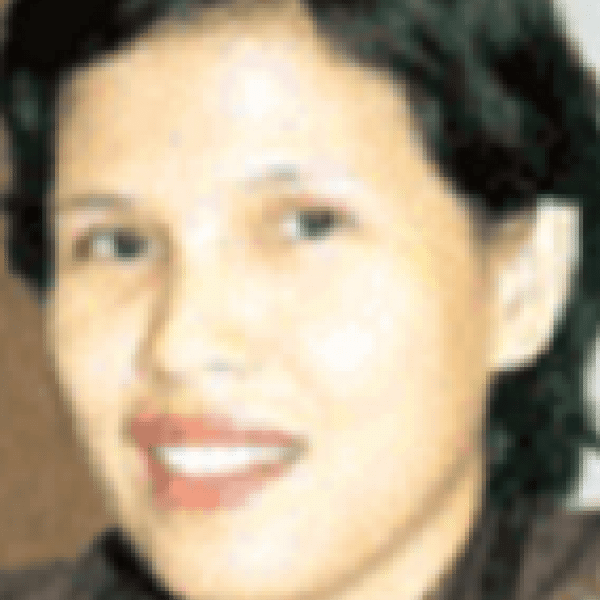Introduction
Naiyana Supapung is working to provide women with fair treatment under Thai law.
The New Idea
Naiyana Supapung provides women with an understanding of their rights as citizens and helps them gain access to legal services to help protect these rights. Specifically, she targets women who are economically and socially marginalized–such as prostitutes and migrant workers–who traditionally have little access to legal information and assistance.Naiyana recognizes that in addition to legally protecting women whose rights have been violated, society must incorporate women's concerns and perspectives into the writing of the law. She encourages women to lobby for revising the law to encompass the rights of all women, including prostitutes, who are currently regarded as criminals rather than victims. In addition, Naiyana wants to ensure that all women receive fair and sensitive treatment within the legal system. To achieve that goal, she educates and trains those people who are in charge of enforcing the law–police officers, prosecuting lawyers, judges, and government officials–about the special legal problems and concerns that women face.
The Problem
Despite the laws that currently exist for the protection of women in Thailand, the number of females being forced into prostitution, raped or assaulted by authority figures at work and school is increasing. Social norms and restrictions often discourage women from asserting their legal and personal rights and from seeking to prosecute their attackers.
Law enforcement and judicial officials who should work to provide an answer to this problem are often a part of it. They encourage women to tolerate abuse rather than to pursue legal redress and view rape and abuse cases as "disruptive" and embarrassing or shameful for a woman's family. In response, many women are too intimidated and frightened to report the crimes against them.
Within the legal code, examples of bias against women are numerous. Under current Thai law, it is illegal for female prostitutes to provide sexual services but there is no law that prevents men from purchasing these same services. While many of the women who are prosecuted for prostitution were kidnapped or in other ways taken from their families and forced to become prostitutes, this fact is discounted by the law. While the current civil code permits a husband to have sexual relations with any number of women, it is illegal for a woman to have sexual relations with any man other than her husband.
The Strategy
Naiyana's campaign for women's rights begins by taking cases that involve women's rights violations to court. These include rape, spousal abuse, divorce and forced prostitution. The court cases advance her two major legal objectives: first, to demonstrate publicly the legal courses of redress for violations of women's rights, and second, to create precedents that will be followed by police, judges and prosecutors.
Drawing upon the lessons and outcomes she learns from these cases, Naiyana provides legal assistance and advice for women. The information she acquires helps her to counsel and educate related government agencies and professionals to understand women's unique problems and to be aware of the solutions that are legally available. Naiyana has already achieved some success using this research method. In examining several past cases, she discovered that in rape cases, women were questioned in a public room, most often by a male police officer. This procedure creates an uncomfortable and often terrifying experience for the women. Naiyana works to make the police aware of, and sensitive to, this situation and has succeeded in establishing special questioning procedures for rape victims. Women are now questioned in private, by female officers.
Using concrete legal cases and numerous examples of legal regulations that are discriminatory to women, Naiyana has compelling evidence to support her broader campaign to amend or repeal the discriminatory laws through legislation. A vital element of her campaign is working closely with the media to provide accurate information for presentation to the general public on the issue of women's rights.
The Person
After Naiyana received her B.A. in law from Ramkhamhaeng University, she quickly learned that opportunities for women to develop their legal careers were limited. Even as a law student, she was told by members of the established legal community that if she, as a woman, wanted a job relating to her field, she should learn to type so she could become a clerk in a law office. Her own experience of discrimination and the realization that nobody was helping her fight for her rights as a woman motivated Naiyana to devote her career to what she calls "women's law."
In addition to her own project work, Naiyana has served as a volunteer in the Women's Rights Protection Center, as coordinator of Friends of Thai Women Workers in Asia and as a member of the Committee for the Amendment of Laws and Regulations Related to Women.
